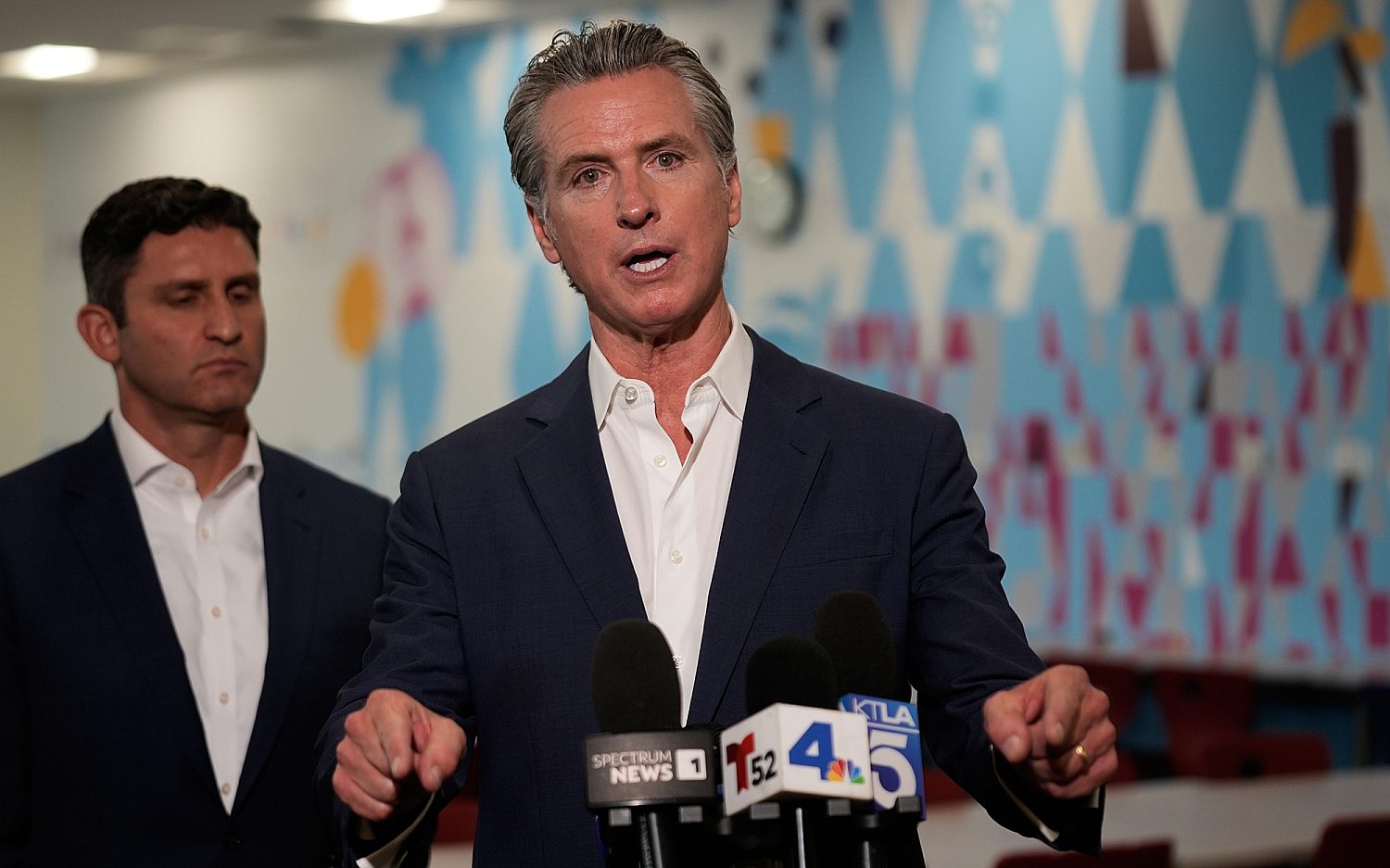Anti-poverty activism
Religious left groups lobby Congress for a larger governmental role in reducing poverty
WASHINGTON-Interrupting visits to the offices of congressional lawmakers to join hands in prayer outside the Capitol is probably not a typical way paid lobbyists spend their normal lunch hour, especially in the recent summer-like D.C. heat. But Tuesday, that is what hundreds of amateur lobbyists did.
Hailing from a coalition of 60 faith-based and anti-poverty groups, the roughly 800 activists came to Capitol Hill to urge congressional lawmakers to cut the number of impoverished Americans in half by 2020.
Organizers of the Mobilization to End Poverty dubbed the day on the Hill as the first gathering of the religious left in the new Obama era. They said this event signaled a shift in the power dynamics of religious political activism: from conservative religious groups having front-row seats in the White House to more liberal religious groups now having the ear of the White House's newest occupant-Barack Obama. As proof of this year's enthusiasm, organizers offered up the fact that more than a thousand registered for the four-day event, up from an average of about 400 in previous years.
The group is calling for all hands on deck to address poverty and to them that includes a larger role for government. Organizers, led by Sojourners, marked the day by sending the activists to meetings in the offices of 82 senators and 215 House members.
Noting that with the nation's poverty rolls growing by as many as 10 million this year in the face of the ongoing global economic crisis, those lobbying Congress Tuesday stressed the urgency of action: "This is a new experience for a lot of us," said Jonathan Bettle, 24, of Akron, Ohio, soon after emerging from a meeting with the staff of Republican Sen. George Voinovich of Ohio. "We are not lobbyists. But the Gospel calls us to look out for the least of these."
For Bettle that translates into calling on government to improve education, access to health care, and the quality of life of its citizens. He said those in the nation who are better off have a moral obligation to welcome tax increases if it means greater support for the nation's poor.
Beyond this call for increased federal funding and the general rallying cry for cutting the nation's poverty numbers in half, activists had trouble articulating specific legislative steps that could be taken.
The effort's printed call to action includes a broad declaration to "protect and defend budget priorities that will reduce poverty" and to "support passage of health care reform protecting the most vulnerable."
Specifically rally organizers hope to: Expand child tax credits as well as spend at least $4.2 billion to expand access to early childhood education such as Head Start. The Mobilization to End Poverty also wants lawmakers to protect budget priorities that increase federal spending in low-income housing, education, job training, and veterans services.
Organizers said the main push this week is to garner support among lawmakers for resolutions stating the intent of Congress to reduce domestic poverty.
Like Bettle, many of Tuesday's participants were young, an observation that excited Jim Wallis, president and executive director of Sojourners. "Poverty is at the top of many young people's agenda," he said moments before he led the group in a prayer rally near the Capitol. "The kind of poverty we have being the richest country in the world is shameful."
Wallis admitted that getting attention for the poor is an uphill battle: "There are three pharmaceutical lobbyists for every member of Congress. How many are there for the poor? Today, we are the lobbyists."
When asked to talk about the tension between who should be at the forefront on serving the poor-community groups or the government-Wallis responded "churches cannot provide health care for 45 million people."
Geoff Tunnicliffe of the World Evangelical Association said the Tuesday's event served as a visual reminder for lawmakers to not forget the poor. But he acknowledged that the problem of worldwide poverty is too big for governments to solve alone: "So there is a need for engagement by the community."
Later this week participants are scheduled to attend workshops on poverty's intersection with issues such as health care, immigration, and race, as well as training sessions on how to organize back home.
Other groups involved in this week's efforts include World Vision, rock star Bono's ONE campaign, Oxfam America, the Evangelical Lutheran Church in America, and National Ministries of the American Baptist Churches USA.
An actual newsletter worth subscribing to instead of just a collection of links. —Adam
Sign up to receive The Sift email newsletter each weekday morning for the latest headlines from WORLD’s breaking news team.





Please wait while we load the latest comments...
Comments
Please register, subscribe, or log in to comment on this article.